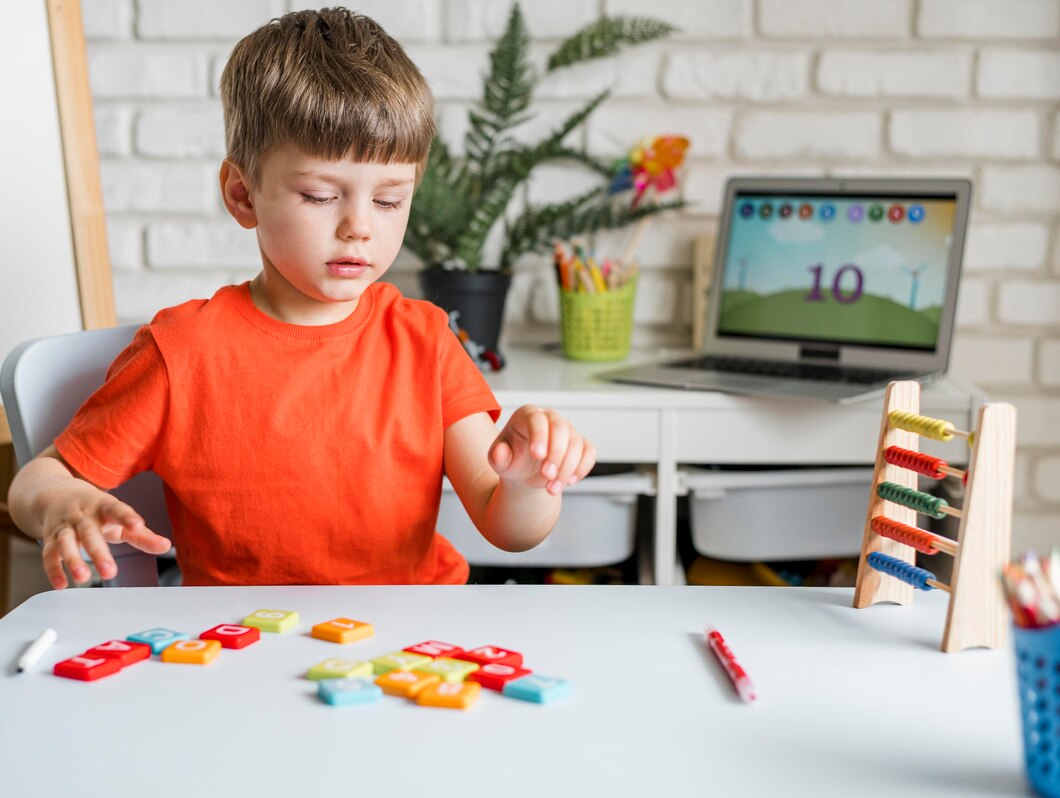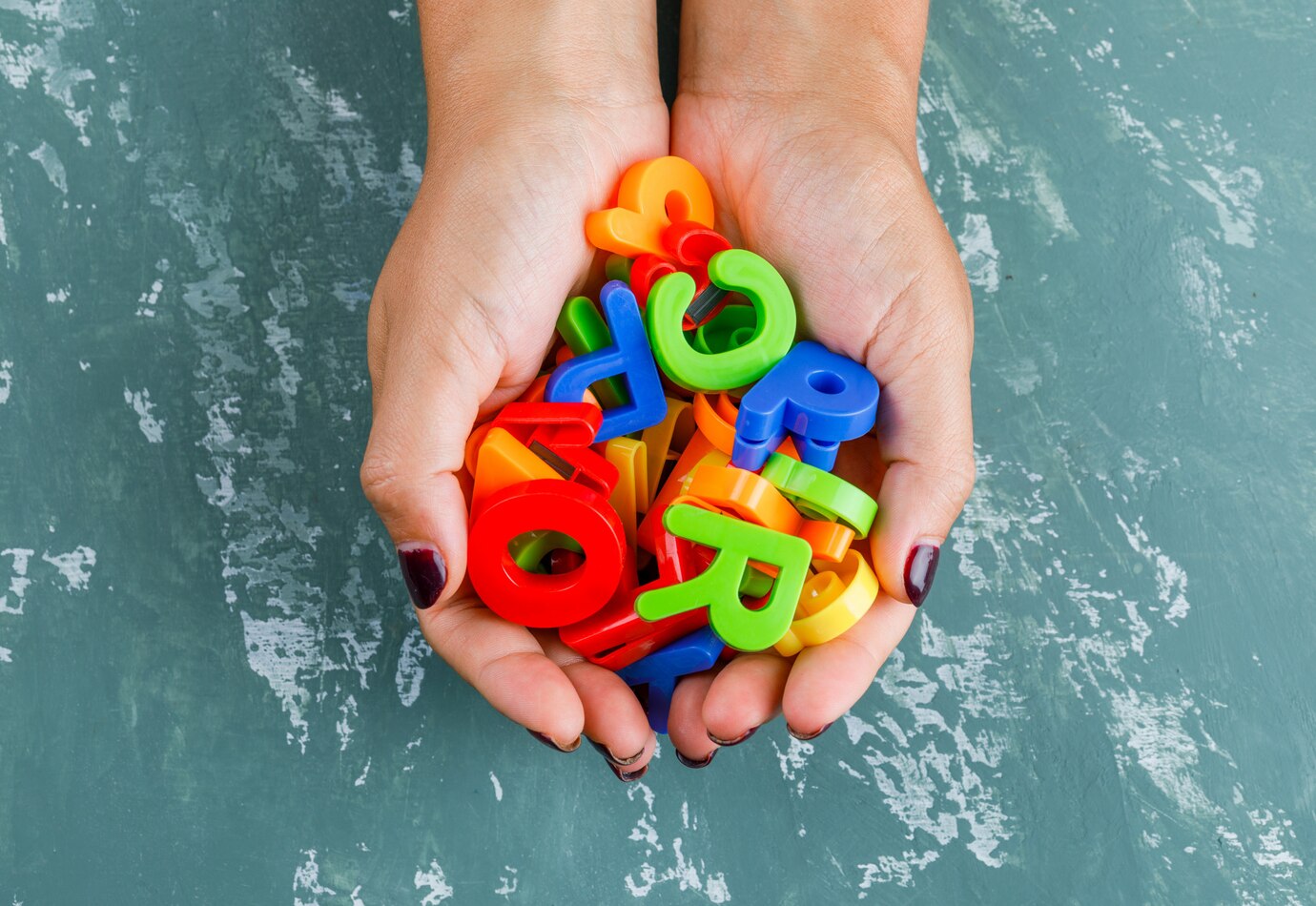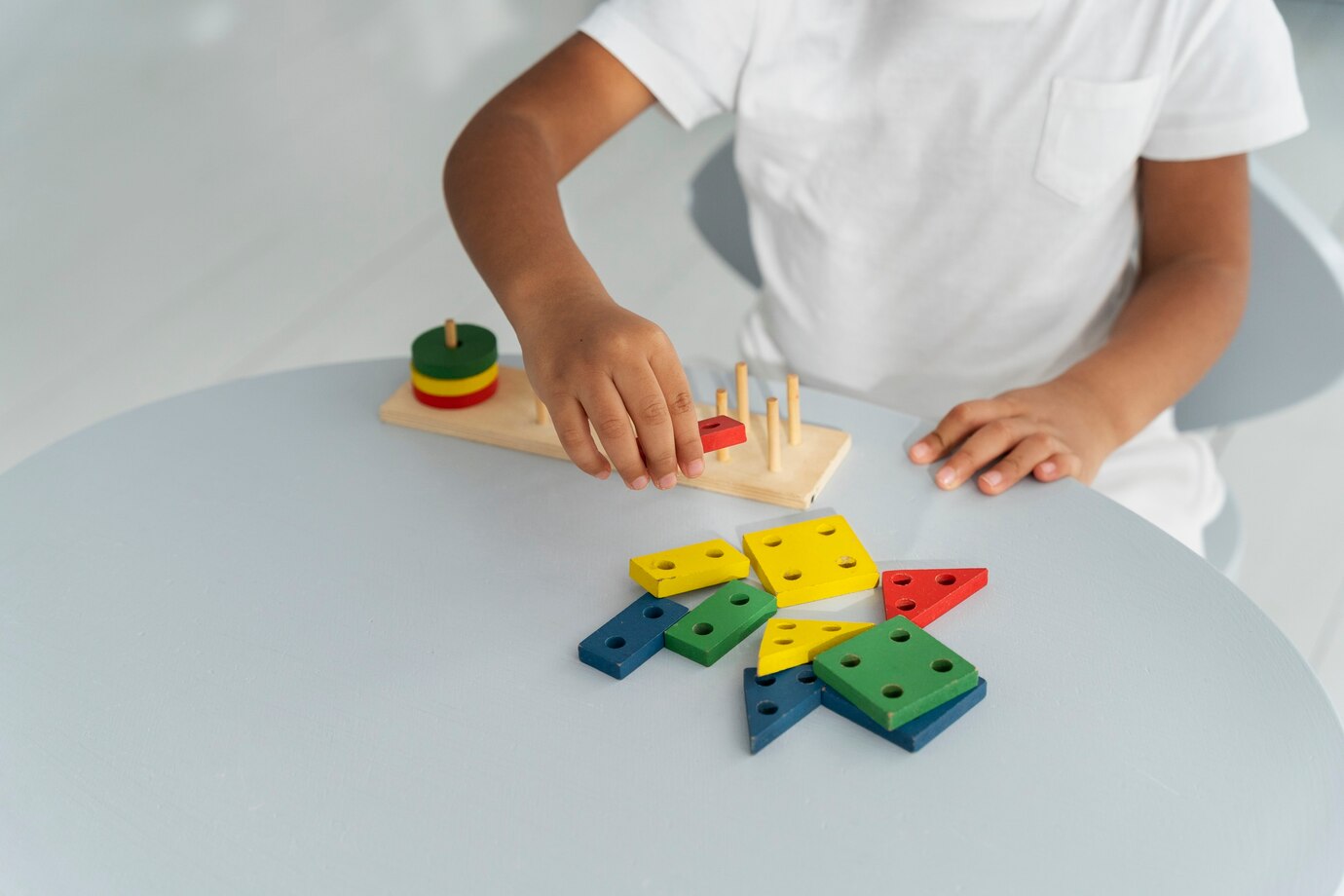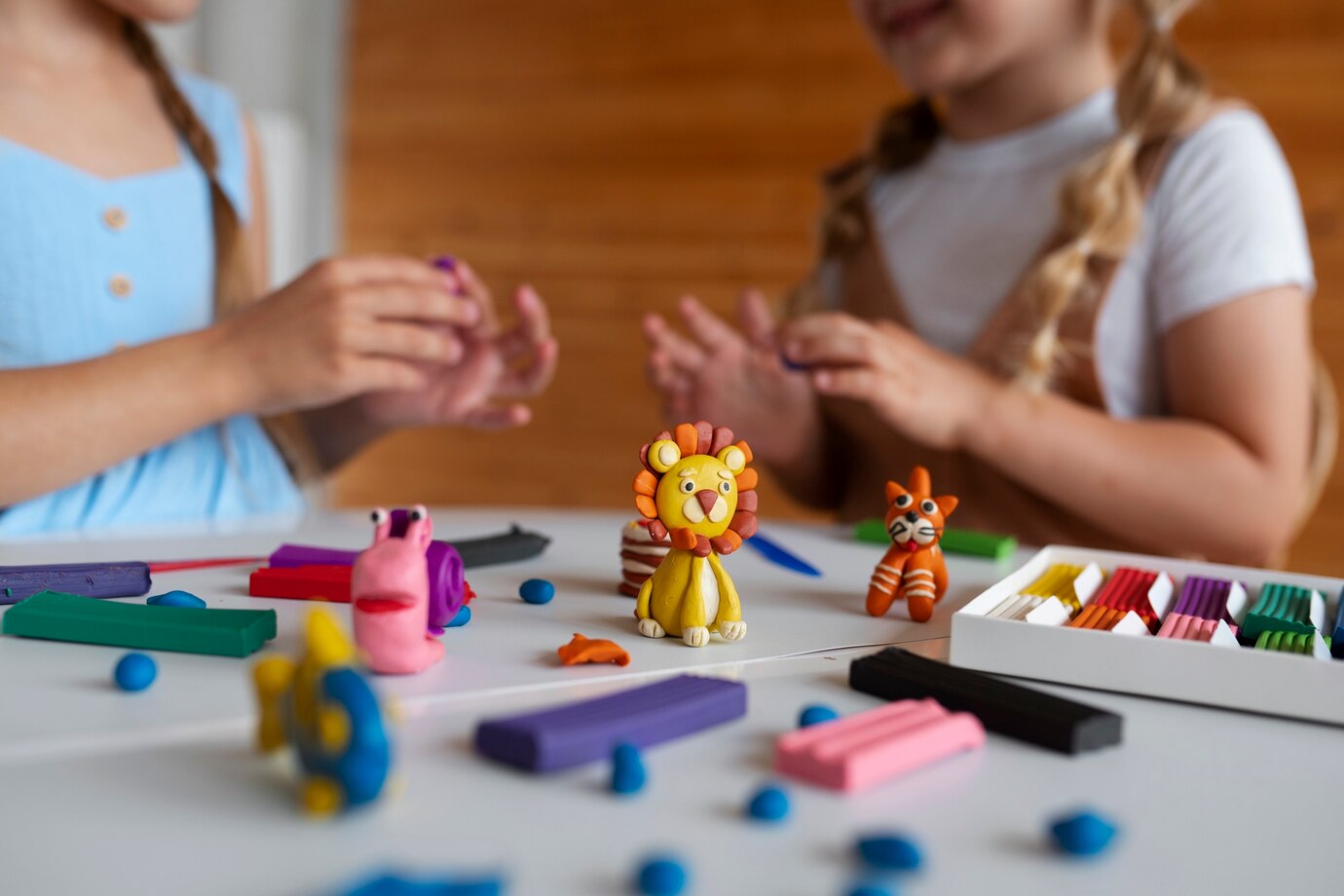
The Best Educational Toys and Games for Different Age Groups
Educational toys and games are becoming increasingly important in today’s fast-paced digital age. As caring and thoughtful parents and educators strive to provide children with meaningful educational experiences, educational toys are an important part of the equation. These tools are not just offering ways to learn. They make it fun and engaging. Knowing how to select the appropriate toys for learning can benefit a child greatly. This blog features the best learning toys for kids of all ages. It shares fun and effective playtime ideas that inspire education.
Let’s face it, toys can be way more than just plain ol’ fun and games. They are powerful learning tools helping children learn the critical cognitive and social skills necessary. And some toys nurtured kids’ problem-solving skills, coordination, creativity and emotional intelligence. The trick is to ensure that toys are appropriate to the child’s developmental stage, interests and learning style.
Key Benefits / Why It Matters

Educational toys are more than just playthings. They are essential components of a child’s cognitive and emotional development. The right toys can foster creativity, enhance problem-solving skills, and improve hand-eye coordination. They also provide an opportunity for children to learn at their own pace in a stress-free environment. Educational toys can connect play with learning, making it fun.
Encourages Cognitive Development
Toys that make kids think help build their problem-solving and reasoning skills. Whether it’s a puzzle, a coding game, or a math-based board game, these toys promote mental engagement and independent thinking.
Enhances Motor Skills and Coordination
Toys like building blocks and art supplies help kids develop fine motor skills and hand-eye coordination. These skills are foundational for tasks such as writing, drawing, and sports.
Promotes Social and Emotional Learning
Board games and cooperative toys help kids learn important social skills. They teach teamwork, patience, and empathy. They also help children develop resilience by learning how to handle winning and losing in a healthy manner.
Fosters a Love for Learning
When learning is fun, children are more likely to develop a lifelong love for acquiring new knowledge. Educational toys make learning fun and rewarding. They present concepts in an engaging way, not an intimidating one.
Real-life applications of educational toys are evident in various studies. Research shows that kids who engage in educational play early on usually do better in school. These toys can spark a love for learning. They help children explore and discover new ideas on their own.
Step-by-Step Guide / Actionable Insights

Choosing the Right Educational Toys for Different Age Groups
Infants (0-12 Months)
At this stage, infants are exploring their senses and developing motor skills. Toys that stimulate sensory experiences and encourage movement are ideal. Consider the following:
- Soft Blocks: These are excellent for tactile exploration and can help develop fine motor skills.
- Rattles and Teethers: These toys are perfect for auditory and tactile stimulation.
- Activity Gyms: They encourage reaching, grabbing, and kicking, promoting physical development.
- High-Contrast Books and Toys: Infants can’t see well at birth. High-contrast toys with black-and-white patterns help them develop their vision.
Toddlers (1-3 Years)
Toddlers are curious explorers with a burgeoning sense of independence. Toys that promote problem-solving and creativity are beneficial:
- Building Blocks: They enhance spatial awareness and fine motor skills.
- Shape Sorters: These toys aid in cognitive development and hand-eye coordination.
- Musical Instruments: Encourages rhythm and auditory skills.
- Push-and-Pull Toys: These improve balance and coordination while encouraging movement.
- Interactive Picture Books: Lift-the-flap and touch-and-feel books make learning fun. They help kids develop early literacy skills.
Preschoolers (4-5 Years)
Preschoolers are developing language and social skills. Toys that encourage interaction and learning through play are ideal:
- Puzzles: They improve problem-solving skills and cognitive development.
- Role-Playing Sets: Encourage creativity and social interaction.
- Educational Board Games: These games introduce basic math and literacy concepts in a fun way.
- Craft Kits: Activities such as colouring, beading, and sticker books help improve fine motor skills and boost creativity.
- Simple Science Kits: Basic experiments introduce children to cause-and-effect relationships and scientific thinking.
School-Age Children (6-12 Years)
At this stage, children are refining their skills and exploring new interests. Toys that challenge their intellect and creativity are recommended:
- STEM Kits: These kits introduce science, technology, engineering, and mathematics concepts.
- Art Supplies: Encourage creativity and self-expression.
- Strategy Board Games: Enhance critical thinking and strategic planning skills.
- Coding Toys and Robotics Kits: Introduce programming fundamentals through interactive, hands-on learning.
- DIY Engineering Kits: Build-your-own projects foster mechanical skills and innovation.
Additional Expert Tips & Common Mistakes to Avoid
When selecting educational toys, consider the child’s interests and developmental stage. Avoid toys that are too advanced, as they may lead to frustration. Similarly, toys that are too simple may not provide enough challenges to stimulate learning.
It’s also essential to balance educational playtime with free play. Structured play is helpful, but free play lets kids explore their imagination and creativity freely. Open-ended toys, such as building sets, art supplies, and storytelling games, help kids think independently and spark their creativity.
Common Mistakes to Avoid
- Overloading with Too Many Toys: Too many toys can be overwhelming and reduce engagement with each item.
- Focusing Solely on Academics: Play should be enjoyable; avoid turning every activity into a lesson.
- Neglecting Interactive Play: Playing with your child helps them learn and builds strong bonds.
Advanced Insights / Expert Recommendations
Experts recommend rotating toys to maintain a child’s interest and engagement. Introducing new toys slowly can help prevent overstimulation. This way, kids can explore each toy more deeply. Involving children in picking their learning can empower them. It also helps them feel more connected to their journey.
Consider the toy’s longevity and versatility. Toys that can be used in multiple ways or adapted as the child grows offer better value and sustained engagement. Multi-use toys, like building kits and open-ended materials, let kids explore new possibilities over and over.
Unlocking Learning Through Play

In order to select the best learning toys for kids, you must understand their needs and interests. There are plenty of playtime ideas that engage kids while helping to grow their minds, and parents and educators provide some entertaining fun for kids. These are entertaining and informative activities, making learning fun. This is where the aim is to keep the process of learning enjoyable for kids in a manner that they actually want to do.
These details play a part in choosing your educational toys and games and help you understand how each option will help their growth. Play with them, and see how they play with different toys. These are valuable in building the parent-child bond. It also provides insights about their learning needs and preferences.
What toys focusing on education, have you bought for your child? Comment down below with your own experiences and tips!